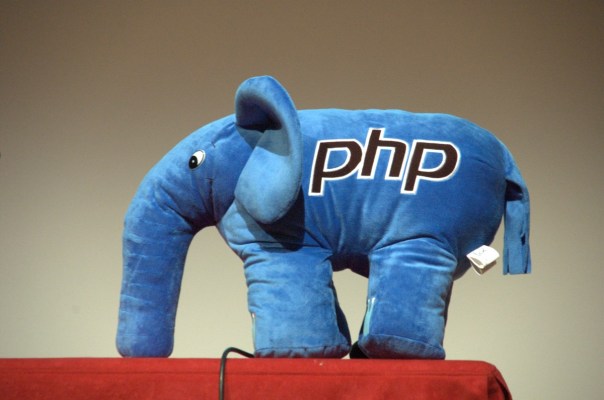Cloud platform Heroku today announced a set of new tools for PHP developers that aim to give PHP the kind of enterprise-grade support the company already offers for Rails, Python, node.js and other languages.
It’s no secret that PHP doesn’t always get the credit it deserves. While the language has developed quite a bit over the last few years — in large part thanks to capable frameworks and package support with Composer — it still gets a bad rap. Some of that is deserved, given that it can encourage beginners to write bad code (though we can also blame all of the outdated PHP tutorials and code snippets on the web for this). At the same time, though, it’s a pretty easy language to pick up and in the right hands, it’s just as capable as any other server-side language.
As Heroku’s VP of product Adam Gross told me, the company sees today’s launch as something of a “coming out party for PHP, as it goes from a good language for hacking together small projects to graduating as a first-class framework.”
Gross believes that part of this renaissance for PHP is due to Facebook’s continued investment in the language and Heroku has decided to use Facebook’s HipHopVM as the basis for its implementation of the language. HipHop will give PHP developers on Heroku significant speed increases over the traditional PHP VM and using it is as easy as setting a flag in the Heroku deploy script.
Heroku will also support Composer — the most widely used package manager for PHP — out of the box. Package manager support, Gross argues, is an essential feature that makes the difference between the old “hackish PHP development model and the more professional model.”
On Heroku, PHP will also be able to make use of the company’s recently launched Heroku XL dynos, which Gross argues will allow companies to go from prototyping in PHP to deploying large-scale and widely-used apps without having to switch languages or platforms. A few companies — including Facebook — were able to stick with PHP as they grew, but they needed massive engineering efforts to make this happen. “We want to make that same path as easy as possible for developers,” Gross told me. “If you love PHP, you can take it all the way to being one of the largest applications on our platform.”
As part of its commitment to PHP, Heroku now offers 24/7 technical support for developers.
Judging from my discussion with Gross, the company is clearly targeting enterprise developers with this move. He believes that enterprise is the next frontier for PHP and that for the longest time, companies looked at it “as a bit of a redheaded stepchild in the enterprise community.” Now that it offers package management and enterprise-level support through Heroku, he believes that time is coming to an end and that enterprises will give PHP another look.
Image credit: Manuel Baldassarri under CC 2.0 license.
